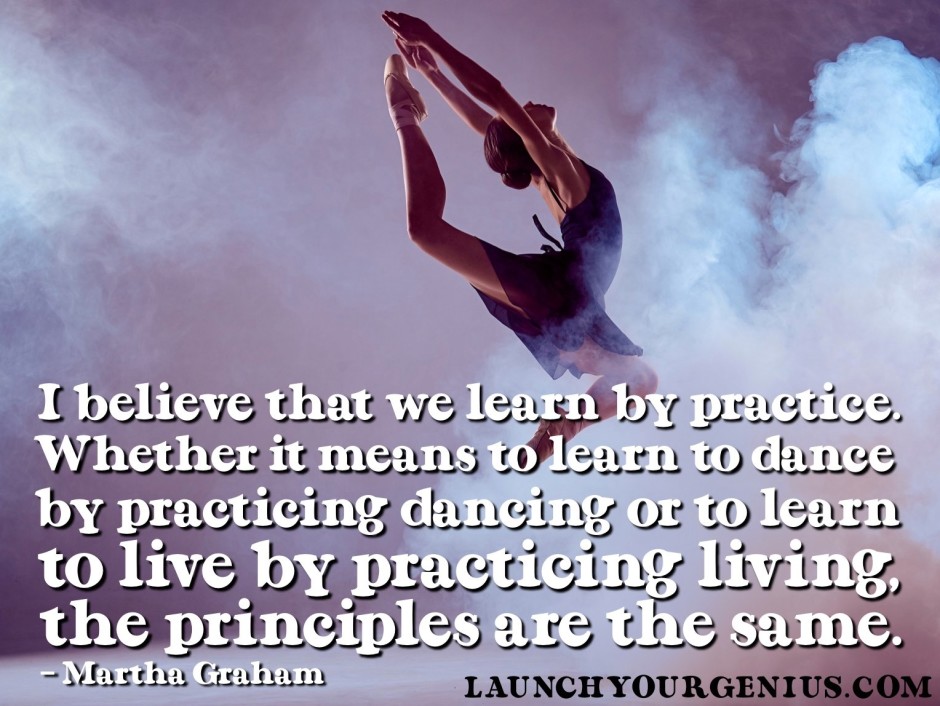
“Expressing ideas is often the only way to fully understand what ideas are, and to know what it is you really think.”― Scott Berkun, Confessions of a Public Speaker
Do you feel anxious when you have to make a public presentation?
Are you terrified of asking questions because you feel like you appear silly?
Are you making excuses and avoiding situations where you need to speak in groups?
You would like to improve your public speaking skills but you feel like you have hit upon an invisible wall?
DO you want to appear more natural, organic and at ease and not want to anxiously rush through all the talks that you have to give?
Here are 15 effective ways to transcend the fear of public speaking and improve your speaking skills.
I have included action tips at the end of each. It is best if you practice taking action and try those out for yourself.
This is part-1 of the 2-part series on speaking.
Let us get going!
1. Become Aware of Your Anxieties and Avoidance Strategies
“I used to be incredibly afraid of public speaking. I started with five people, then I’d speak to 10 people. I made it up to 75 people, up to 100, and now I can speak to a very large group, and it feels similar to speaking to you one-on-one.”- Robin Sharma
Speech anxiety and fear is called glossophobia and it is more common that we think or care to admit. This could manifest in the form of an anxiety of public speaking or of the fear of speaking in general.
Why is public speaking such a huge fear and is universally present across countries, cultures and languages?
Speech anxiety can come with social phobia or other forms of tension, worry and anxiety. Together they form a powerful mix that can take away from the quality of our social and professional life.
The first step in understanding this problem is to become aware of it. Acknowledge the presence of this anxiety in your life. Now some of us are more anxious than others and in different situations.
Become aware of the flight or flight mechanism that may be automatically making you anxious.
Scott Berkun, the author of Confessions of a Public Speaker says in his book:
“the design of the brain’s wiring—given its long operational history, which is hundreds of thousands years older than the history of public speaking, or speaking at all, for that matter makes it impossible to stop fearing what it knows is the worst tactical situation for a person to be in. There is no way to turn it off, at least not completely.”
Berkun identifies four things that our brains think are bad for survival.
These things form the tactical situation that he talks above.
They are standing alone, being in an open place with no place to hide, without a weapon to defend the self, and in front of a large group of animals staring you down.
Sounds familiar? Yes, you guessed it! Public speaking closely matches all the four things that Berkun talks about.
When we were free ranging on the Serengeti, our ancestors may have evolved to be afraid of being alone and being in open spaces.
Where would the next threat come from which would almost certainly mean an end to the individual?
It is understandable that we must have been guarded and internalized a message of safety with open public spaces.
But that threat no longer exists.
Except deep in our DNA and in our automatic physiological responses where we still perceive a threat and begin sweating at the mere mention and thought of a public performance.
Berkun points out that the fear responses have become out of sync with a lot of modern living.
Recognize that this fight or flight hijack pattern may be making you more anxious.
Are you avoiding social situations, classes, careers, settings because of the fear of public speaking and performance?
Berkun says:
“The downside is that this fear-response wiring causes problems because our lives today are very safe. Few of us are regularly chased by lions or wrestle alligators on our way back to work, making our fear-response programming out of sync with much of modern life. As a result, the same stress responses we used for survival for millions of years get applied to non-survival situations by our eager brains.”
Action Tips:
1. Become aware of the role of anxiety and fear of speaking in public.
2. Is your fear justified?
3. Can you stop the mental hijack of anxiety by distracting yourself? Can you slow down the fast moving and automatic pace of the fight or flight response?
4. Make an attempt to place yourself in more social situations and places where you have an opportunity to speak in public.
“We develop ulcers, high blood pressure, headaches, and other physical problems in part because our stress systems aren’t designed to handle the “dangers” of our brave new world: computer crashes, micromanaging bosses, 12-way conference calls, and long commutes in rush-hour traffic.” ― Scott Berkun, Confessions of a Public Speaker
2. Put FEAR in the Right Context, Accept not Avoid
“I’ve had a lot of worries in my life, most of which never happened.” ― Mark Twain
You may have heard of the popular acronym of FEAR: False Events Appearing Real.
It is very beneficial to place the fear of speaking in the right context.
Are you imagining a worst possible scenario?
One thing that really helps with fears is understanding that what you resist persists. It comes back to bite us with more ferocity. The same is true of the fear of public speaking.
When you actively resist and imagine the fears of speaking, you are putting in a lot of mental faculties and energy into something you wish to avoid.
The goal is to lean into your fears and transcend them and not avoid them. Accept your fears and panic, not avoid it.
Action Tips:
1. Place your fears in the right perspective. Ask and call out your fears as being exaggerated. How many times have your irrational fears actually come true? My guess would be that not that often.
2. Instead of resisting your fears, accept that you have some fear of public speaking but you are going to go through with it regardless.
3. Remember that last time that you were in a spot with speaking. Did your thinking cause the tension and how was the actual outcome? Was it better that what you imagined?
4. Know and believe that you will emerge out of this fear and anxiety. Ask what is the absolute worst that will happen? You will forget some lines or you will appear tense or hurried. None of the doomsday scenarios might actually happen. Everything else is uphill from a scenario that rarely happens.
5. Accept, allow, transcend and do not try to eliminate the fear of speaking. Become determined to speak in spite of the fear and anxiety. Each time you try and do, you will emerge stronger and more confident. Try it out!
“You gain strength, courage, and confidence by every experience in which you really stop to look fear in the face. You are able to say to yourself, ‘I have lived through this horror. I can take the next thing that comes along.’ You must do the thing you think you cannot do.” — Eleanor Roosevelt

3. Scratching Below the Surface: The Insidious Fear of Rejection and Self-worth
“Life is too short to waste any amount of time on wondering what other people think about you. In the first place, if they had better things going on in their lives, they wouldn’t have the time to sit around and talk about you. What’s important to me is not others’ opinions of me, but what’s important to me is my opinion of myself.”― C. JoyBell C.

A lot of pubic speaking issues might be in response to deeper issues and unresolved emotions.
Many of us remember being told to shut up when we spoke in the past. It is ironic and unfortunate that we spend the first few years of life encouraged to speak. And the rest of life people are trying to quiet us down and hold our ideas to ourselves.
You may have a story in the past when you got shamed for speaking up even if you were being reasonable. You simply did not fit into someone else’s agenda.
It is no wonder than with alpha people and other people who think that they know it all that we may develop speaking self-image issues.
Not to mention, all the people ready to jump in any situation and interrupt you and finish what you have to say.
These are some of the common questions to ask yourself:
- Do you have self-image issues?
- Do you feel like you are not good enough?
- Do you feel like your story does not matter?
- Do you have deep seated beliefs and patterns that are unsupportive of your speaking?
- Do you feel like you have nothing to say?
- Do you allow vulnerability? If you are afraid to be and look vulnerable, you may avoid speaking your opinion out.
Action Tips:
1. Address self-esteem and confidence issues to get deeper into why you hate public speaking so much.
2. Remember that you do not owe anybody anything. You have a right to express your opinion if it is within the framework of being constructive and reasonable.
3. Every single person including you has something valuable to say and add to this world. Even if it is your personal stories or your unique experiences, you matter. Do not let anyone take that away from you.
4. Do you have the “poor me” and the victim mentality. Do you get crushed by the criticism and judgment of others, especially if it is an area that is not your expertise? If blame and criticism terrify you, they may be an issue in the context of public speaking also.
5. Control the ANTS or automatic negative thoughts and be compassionate with yourself.
4. Get Organized and Get Ready
“These are the three things—volume of sound, modulation of pitch, and rhythm—that a speaker bears in mind. It is those who do bear them in mind who usually win prizes in the dramatic contests; and just as in drama the actors now count for more than the poets, so it is in the contests of public life, owing to the defects of our political institutions.”― Aristotle, The Rhetoric & The Poetics of Aristotle
One of the surest and best ways of becoming a great public speaker is organization and preparedness.
Have you heard a wonderful speaker before? Perhaps you have been enthralled with a TED talk that you watched or became captivated by the seminar speaker.
How much practice and training and organization goes into that talk? Take a moment to pause and think about that. Most people vastly underestimate the work that goes into an effective presentation.
Simply because we have heard the talk for the first time does not mean that it is the very first time they have spoken that talk.
With this bias in mind of underestimating the time that goes into a great presentation, you begin to believe that you need to be a great speaker right off the bat.
Unfortunately, that is a bit of wishful thinking on our part. Don’t get me wrong. I made the same underestimation and determined that I was not a great public speaker. Granted, I was all right but I did not feel like I was a natural or an excellent speaker.
But being a natural speaker comes with preparedness and organization.
Action Tips:
1. Develop more interest and enthusiasm for your field: Research the topic that you wish to speak about.
2. Organize the layout of your talk.
3. Ask what format of presentation works for you? Are you going to have a PowerPoint or other software based presentation or are you going to have props etc.?
4. Are you going to present real life examples?
5. What about the structure of your talk? A hook, beginning, middle and summary? Have you thought through the structure?
5. Practice, Practice, and Practice
“The only way to learn to speak is to speak and speak, and speak and speak, and speak and speak and speak”-Elbert Hubbard
The next step in preparing yourself for a talk is practice. A lot of focused hard work and practice. Many people do not want to put in the work and assume that they are not good speakers.
I thought great speakers were born that way with that skill set and not made.
Then, some friends in graduate school showed me a different way. I was invited to a pre-talk by this post-doctoral scholar. He was practicing his talk to a small focus audience. I was invited to be part of that small group to give feedback.
The interesting thing about this pre-talk was that it was an actual simulation of the real talk, including timing and location.
Everything!
The speaker presented like he was doing the actual thing. Turns out that I was witness to a great speaker.
But he did not sit on his laurels. He kept practicing specific talks and answered questions a lot before the real thing. Was it a surprise that he was confident and a great speaker by the time he gave the actual talk?
This changed the perspective for speaking for me. I realized that good speakers are made more than being born with great speaking skills.
“I believe that we learn by practice. Whether it means to learn to dance by practicing dancing or to learn to live by practicing living, the principles are the same. – Martha Graham

Action Tips:
1. Practice your presentations several times in a real life setting with real people or a small focus group looking at you.
2. Anticipate questions and begin thinking about interacting with your audience.
3. Record your presentation to see where you can improve.
4. Practice where you would speak if possible. And like it is the real thing with punctuations and time yourself.
5. Feedback and criticism should be constructive and non-threatening but genuine.
6. Practice the flow of the talk and how you manage interruptions.
7. Know when to push, when to emphasize and when you are assuming a boring monotone. And best of all practice the nuances in a real life talk practice.
8. Look in the mirror and practice.
“How would you cure a horse that is afraid of cars—graze him in a back-woods lot where he would never see steam-engines or automobiles, or drive or pasture him where he would frequently see the machines? Apply horse-sense to ridding yourself of self-consciousness and fear: face an audience as frequently as you can, and you will soon stop shying.” ― Dale Carnegie, The Art of Public Speaking
6. Realize that Others Have the Same Fears and Concerns
“There are only two types of speakers in the world. 1. The nervous and 2. Liars.” – Mark Twain
One of the major issues we have with public speaking is the idea that others are somehow superior to us.
We believe that others are at a different level than where we are at or they are somehow immune to anxieties.
Since you cannot look at the fears and concerns of others, you assume that they have little or none with public speaking.
This assumption is quite inaccurate. Look at others as having the same concerns and fears, because they do.
Associating with the human condition instead of feeling isolated gives you the enormous power of connection and social proof.
If you do not believe me, ask someone you respect. Did they fear public speaking and how they got over some of their fears? Get other perspectives and allow them to broaden your perspective on speaking.
Action Tips:
Change the perspective of your thinking and make a public appearance and speech into more of the following:
- A fire-side chat with others and not a monologue.
- A form of effective communication.
- Think of your audience as warm friends.
- Smile at them.
- Shake their hands.
- Break the ice before the talk by holding a few casual conversations.
- Instead of jumping in and presenting….I always chat with people and see if they have any problems or questions.
No one can look into your mind and they do not know how anxious you really are. So instead of feeling alienation, try feeling connected with people.
7. Actively Seek Situations Where You Can Present and Speak in Public
“Speech is power: speech is to persuade, to convert, to compel.” -Ralph Waldo Emerson
There are two choices in front of you. The first is to avoid any public seeking engagements. The other and imaginably more scary method is to seek public speaking to slay the dragons of fear.
Next time you have a chance to speak, raise your hand and ask that first question without analyzing it too much.
Remember the more you think in your mind over how you are going to ask your question, the more anxious you become. The trick is to nip the fear in the bud and jump in and speak when you have the opportunity.
Of course, we need to know when to speak up and not interrupt people which is rude in most cultures.
Action Tips:
1. Seek public speaking opportunities.
2. Volunteer to present the project that your group made. You may be surprised at how any speaking opportunities that will present themselves.
3. Speak while the anxiety is still small. Do not over analyze and over think or assess for the right way to say something. Think it up, or even write it down and then when it is your turn, speak up immediately. Hijack the anxiety hijack by acting before you have time to ruminate over the worry.
This is the end of part-1. Please let me know in the comments below on how you get past your fear of public speaking.




Comments